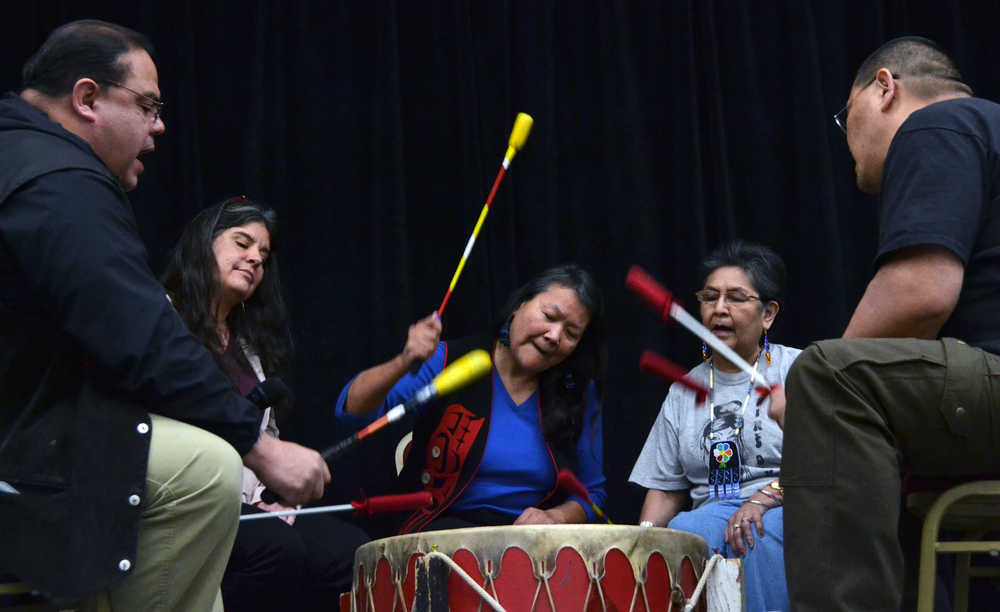Mia Berzanske was one of nine Haven House residents — some current, some former — who shared stories of recovery Saturday during a community get together sponsored by the Juneau Reentry Coalition.
The coalition organized the event, titled Thankful for Another Chance, to foster hope among formerly incarcerated people and those facing addiction. It was also “a good stepping stone” for anybody who might want to get involved with the coalition, said event organizer Christina Lee.
Like those of her peers, Berzanske’s was a story of addiction and hardship told with an optimistic outlook, a recent development she credited to her Haven House family.
“I’m super happy to be able to be a part of this,” she said, speaking to an audience of about 50 people in Elizabeth Peratrovich Hall. “I really look forward to what the future holds.”
That wasn’t always the case. Haven House Director Kara Nelson recounted how Berzanske nearly ended up in the cycle of recidivism that organizations such as the Juneau Reentry Coalition and Haven House are trying to upset.
Berzanske’s story of success is one born by “breaking down barriers” in the criminal justice system, Nelson said. Shortly before Berzanske was released from a stint in Lemon Creek Correctional Center, her mother called Nelson, asking for a way to help her daughter.
“When her mom called me, there were no other resources in sight,” Nelson said.
The criminal justice system in Alaska — and elsewhere in the United States — often uses prisons to deal with problems like substance abuse and chemical dependency, both of which would be better addressed at treatment facilities, Nelson said. Historically, prisoners, especially those fighting addiction, haven’t been given the resources (or even the information) they need to succeed once they reenter their communities.
The Juneau Reentry Coalition is working to fix that. The Department of Corrections currently uses a risk-assessment tool to determine what resources each person imprisoned for more than 30 days might need, according to Don Habeger, the coalition’s community coordinator.
Habeger said Saturday that the coalition will be working closely with Juneau’s prison to make sure the community also knows what resources each prisoner might need so that it can help support them after they’re released.
About 95 percent of all prisoners will eventually be released, and close to 500 formerly imprisoned people will reenter the Juneau community each year, according to Habeger.
“They’re a part of our community, too,” he said.
But in order to break the cycle of recidivism and fix a criminal justice system that treats prisons as rehab facilities, Nelson said that formerly incarcerated people can’t be relegated to menial positions upon release. Though stories like Berzanske’s are powerful tools when it comes to reducing the stigma surrounding former prisoners, Nelson, a convicted felon herself, said that “we are not just cute recovery stories.”
Unless people who have made it out of the prison system are empowered and given a chance to be a part of discussion about criminal-justice reform, Nelson fears that making systematic improvements will be difficult if not impossible.
“There is no authentic change without including the voices of those who have been directly impacted,” she told the Empire after the event Saturday. “Those closest to the problem are closest to the solution but farthest from the power and the resources. People’s voices have been silenced for so long, and in order to break that, we have to be at the table, every table.”
• Contact reporter Sam DeGrave at 523-2279 or sam.degrave@juneauempire.com.

